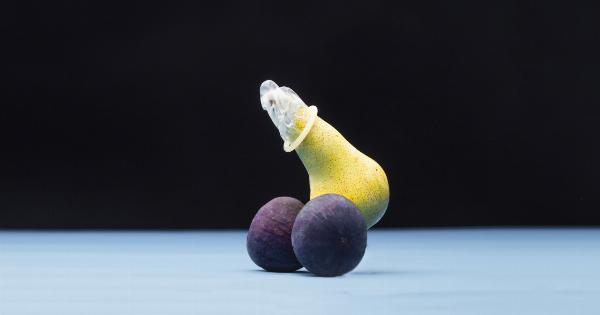Birth control pills are a commonly used form of contraception among women. They contain hormones that prevent pregnancy by stopping ovulation, thickening cervical mucus, and thinning the lining of the uterus.
However, certain foods and substances can potentially interact with these hormones and affect the effectiveness of birth control. It is crucial to be aware of these interactions to ensure maximum contraceptive efficacy and avoid any unexpected surprises. In this article, we will discuss foods that can potentially impact the effectiveness of your birth control.
1. Grapefruit
Grapefruit and its juice are known to interact with various medications due to the presence of compounds that can inhibit the activity of certain enzymes in the liver.
This interference can affect the metabolism of hormones in birth control pills, potentially reducing their effectiveness. It is advisable to avoid consuming grapefruit or its juice while on birth control pills.
2. St. John’s Wort
St. John’s Wort is a herbal supplement often used to alleviate symptoms of depression and anxiety. However, this herbal remedy can induce the liver enzymes responsible for breaking down hormones, leading to a decrease in hormone levels.
To ensure the effectiveness of your birth control, it is recommended to avoid using St. John’s Wort or discuss alternative contraception methods with your healthcare provider.
3. Licorice
Licorice root has been found to potentially decrease the effectiveness of birth control pills. This effect is believed to be due to a compound called glycyrrhizin, which can interfere with the metabolism of hormones.
Although more research is needed, it may be prudent to limit licorice consumption while on birth control.
4. Soy
Soy contains compounds known as isoflavones that possess estrogen-like properties. While research is inconclusive, some studies suggest that high soy consumption may reduce the effectiveness of birth control pills.
If you consume soy products regularly, it is advisable to consult with your healthcare provider regarding potential interactions.
5. Caffeine
While caffeine itself may not directly interact with birth control pills, it can impact the absorption of nutrients, including those in your birth control pill.
Since hormonal birth control pills may rely on specific nutrient absorption, it is recommended to moderate caffeine consumption and maintain a balanced diet to ensure optimal efficacy.
6. Alcohol
Alcohol is not known to directly interact with birth control hormones. However, excessive alcohol consumption can affect liver function, potentially impacting the metabolism of hormones in birth control pills.
This can lead to decreased contraceptive effectiveness. It is best to consume alcohol in moderation and discuss your alcohol consumption with your healthcare provider.
7. High-Fat Foods
Foods high in fat, especially those containing saturated fats, can interfere with the absorption of certain drugs and hormones.
While there is limited evidence directly linking high-fat food consumption to reduced effectiveness of birth control pills, it is recommended to maintain a balanced and healthy diet to ensure the optimal absorption and metabolism of hormones.
8. Antibiotics
Although not a food, it is worth mentioning that certain antibiotics can reduce the effectiveness of birth control pills.
Antibiotics such as rifampin and some penicillins can increase the liver’s metabolism of hormones, potentially leading to decreased contraceptive efficacy. If you are prescribed antibiotics while on birth control, it is advisable to use backup contraception methods and consult your healthcare provider for guidance.
9. High-Fiber Foods
While high-fiber foods generally promote good health, they can interfere with the absorption of some medications. There is limited evidence suggesting that high-fiber diets may impact the effectiveness of birth control pills.
To minimize any potential interaction, it is recommended to take birth control pills at least two hours before or after consuming high-fiber foods.
10. Supplements
Various dietary supplements, including herbal remedies and multivitamins, may contain compounds that can interact with birth control pills.
It is important to read the labels carefully and consult your healthcare provider about potential interactions between your supplements and birth control medication.






























